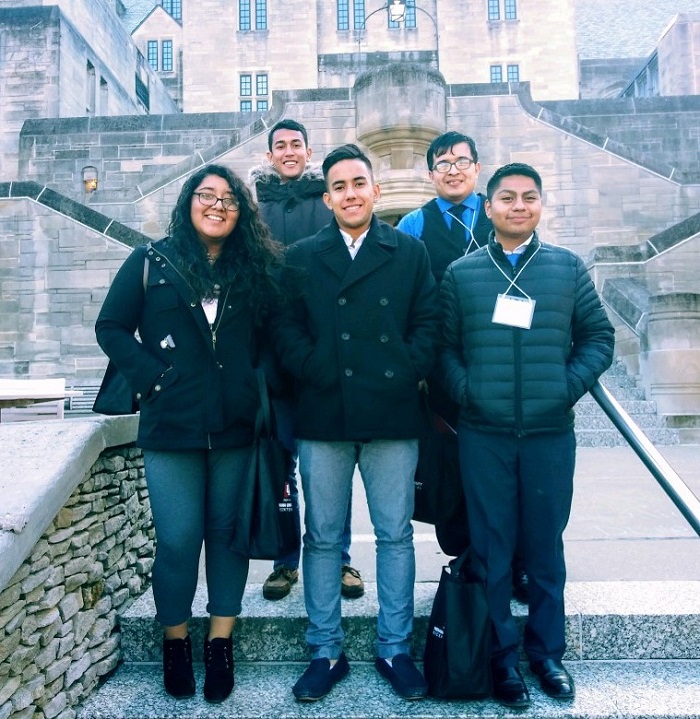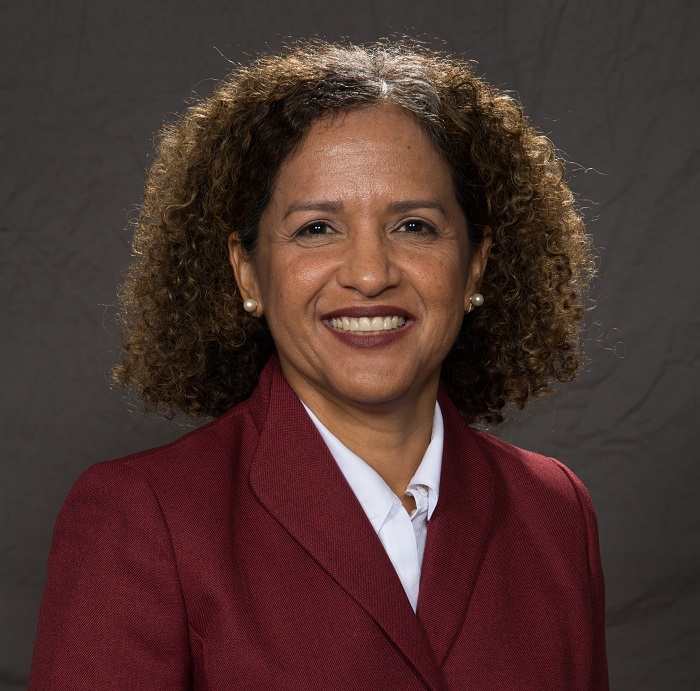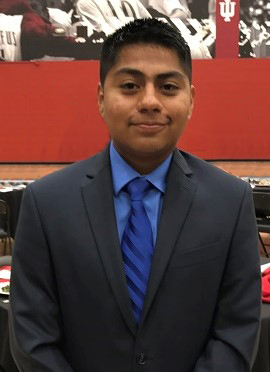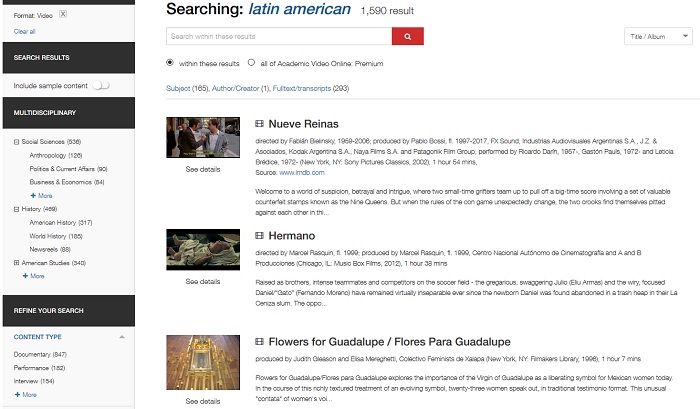IU East is committed to diversity and inclusion and funding is available to support learning and professional development. Recently, the IU East Diversity Fund provided financial resources so two faculty and five students could attend the Indiana University Latino Expo. Business faculty Dr. Jaynne Rivas and business major Eric Mejia shared their conference experiences, which are excerpted below. IU East also supports learning and research through library collections that feature diverse resources. Library Coordinator of Reference Matthew Dilworth highlights some books and databases that focus on content related to topics discussed at the 2019 Latino Expo.
The keynote speaker, Dr. Carmen Henne-Ochoa, shared her experience of growing up as a Latin American immigrant in the US: “We have the privilege of living two cultures.” Part of the speech was in Spanish, and some students did not understand what she meant by “doble personalidad.” It means “your behavior changes according to the social group you interact with, either from Latin America or the US.” Students answered: “Oh, yes, we experienced it too.” They recognized they are not alone on the bicultural path.
The workshop session on “Preparing to Apply for Graduate School in the Social Sciences” emphasized what students can do as undergraduates to be ready for graduate school. The speaker gave advice on working on research and nurturing academic references. The session answered questions such as who can be an academic reference and what academic research is, and that raised students’ curiosity and understanding.
Maya Fernandez, a speaker at a workshop session about “The Power of History Telling” made an excellent point: “We all have stories to tell, but we have to learn how to tell them.” Creating awareness, obtaining people’s attention, and self-empowerment are the main contributions of rightly telling our stories. Our group of conference attendees agreed that we know now how to tell our stories.
Latino Expo promoted resources such as scholarships, cultural awareness, and leadership skills to Indiana Latinx high school and undergraduate students. We benefitted from attending the conference because it offered workshops specific to our needs. At the workshop about preparing to apply for graduate school, I gained insight on what to expect with the application process, the exam I should take, and financial obstacles I need to investigate. This really sparked interest in applying to graduate school. They suggested being involved with clubs and organizations, and the benefits of research projects with faculty.
The workshop on “Leadership and Latino Students: The Need for More” emphasized the demand for Latinx students to raise their voice and be heard by political figures so they can understand our needs. They said something powerful – how Latinx should not be known for doing “the work others do not want to do,” rather to aspire to become leaders. They showed statistics about how the Latinx population is the largest minority group who are underrepresented in businesses, government officials, etc. This projected the idea that we should be heard and our talents put to use. This was a moving and powerful workshop and I was able to share pride in my accomplishments, such as working at the Center for Service-Learning as a program coordinator for Math Counts and Indiana Kids, serving as Treasurer for Circle K International, etc.
To expand knowledge related to the ‘Power of History Telling’ try using AVON (Academic Video Online) – the database includes numerous films by and about Latinos, from powerful fiction (storytelling in its truest sense) like Maten al León and Los Paranoicos to documentaries like Flowers for Guadalupe and The Last Zapatista to interviews with figures like Sonia Alvarez. Subtitles and full transcripts accompany films for learners who do not speak Spanish. The library holds many Spanish-language films on DVD, as well.
You can learn more about ‘Leadership and Latino Students: The Need for More’ such as petitioning and being heard by those in government. A database like Ebook Central is useful for this, offering the topic more room to be explored than you would find in one article. Titles like The Power of Latino Leadership: Culture, Inclusion, and Contribution by Juana Bordas, Latino Politics in America: Community, Culture, and Interests by John A. Garcia, and Latino National Political Coalitions: Struggles and Challenges by David Rodriguez would all add a lot to understanding to this topic.
We also have several databases wholly dedicated to Latin American and Hispanic issues and culture – databases like Informe Revistas en Espanol (perfect for current events, magazines, and pamphlets), Latin American Women Writers, Latino Literature: Poetry, Drama, and Fiction (both excellent for fiction), Feminism in Cuba (great for history) and Sabin Americana, 1500-1926 (which includes a huge amount of Spanish or Portuguese-language primary sources), all of which offer a wealth of information.
If you need any help, just Ask Us! iueref@iue.edu






